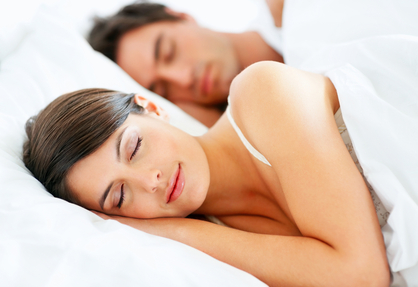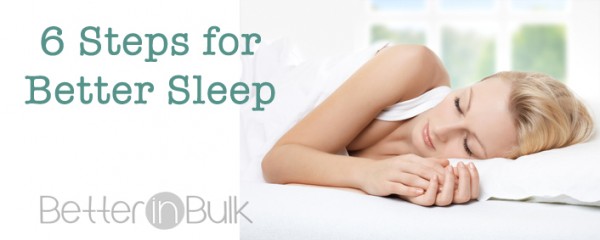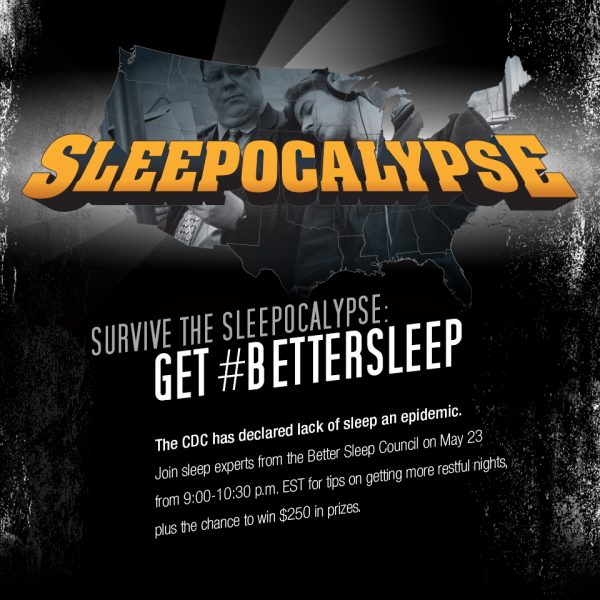This post has been sponsored by the Better Sleep Council, in the form of a new mattress (yay!). No monetary compensation has been received and, as always, all thoughts and opinions are my own.
When asked the question, “Do you feel that, on average, you are getting enough sleep?” I didn’t have to pause to think of my answer.
“No, I definitely don’t get enough sleep,” I said. “I wish I could sleep more, but at night after the kids go to bed, I have a few hours of really productive work time and I have a hard time giving up that time (and turning off my mind!) to go to sleep early.”
I have gotten into a few detrimental sleep habits…and although I know that they aren’t good for me, it has been difficult for me to make any changes. I rarely drink caffeinated sodas after lunch, but I do like an evening snack. I tend to work after the kids go to bed until I am so tired I can no longer keep my eyes open. I love sleeping with the windows open, despite the fact (or sometimes because of the fact) that our backyard sounds like a bird sanctuary. I keep my iPad and phone charging or just sitting on my nightstand, just inches away from my pillow. My phone is my alarm, so I feel like I have to keep it close. I like to check my email right before I go to sleep, often after I’ve turned the lights out to go to bed.
I could go on and on…I’m a horrible example of good sleep habits, not to mention the fact that I tend to get between 5 1/2 and 7 hours of sleep per night.
Two weeks ago, I kept a sleep journal and was brutally honest about the things I did and didn’t do surrounding sleep, bedtime routines, and my bedroom environment. Last week, I got that survey back with a handful of the most helpful sleep-related tips ever.
Sleep expert and Certified Clinical Sleep Educator, Terry Cralle, RN gave me this advice, “Sleep is a biological necessity – critical to your quality of life – affecting everything from your productivity to your health to your mood.” Sleep deprivation leads to a host of problems including decreased performance and alertness, impaired memory, stress and accidents. Did you know that studies have shown that sleep deprivation can also increase your risk for stroke, diabetes, osteoporosis, depression, heart disease, obesity and cancer?
Here are 6 customized tips that Terry shared to get better sleep:
Tips to get better sleep
Create a “wind down” routine for the night.
A few things can help with shutting down your brain at night. It’s a very common problem! Complete your to-do list (and perhaps a separate worries and problems list) for the following day – several hours prior to bedtime. It will help to clear your mind. Also, be sure to have a bedtime routine. A relaxing, pre-sleep routine (sometimes referred to as a pre-sleep ritual) helps you transition from wakefulness to sleep. The repetition of a personal sleep routine actually serves as a prompt to your mind and body to wind down and prepare for sleep. You will begin to associate the activities of your sleep routine with going to sleep. Your routine can consist of a few steps that you can follow every night – and can include activities such as lowering the lights, turning off electronics, getting ready for bed, having some tea, reading non-engaging, non-fiction, doing a crossword puzzle, listening to calming music, taking a warm bath, and some meditation, yoga, guided visualization or breathing exercises to help with relaxation.
Create a sleep-conducive environment that is dark, quiet, comfortable and cool. Make your bedroom a sleep sanctuary – a relaxing, restful retreat with no electronics or work related items visible. Try mental exercises – like listing all animals that start with the letter “A” or list one vegetable for every letter of the alphabet – or think of relaxing scenes or images. Don’t use electronics in bed either. Our beds should be reserved for sleep and sex only – and not associated with doing work-related activities such as checking emails.
Head to bed earlier.
Try going to bed earlier – even for one week to see how you feel. You may just end up liking how you feel with a good night’s sleep! With very few exceptions, most people do require between 7-9 hours of sleep daily.
While most of us assume that sleep hours cut into our productive hours – we are actually more productive with sufficient sleep! So while it may seem counterintuitive, your productivity should increase with sufficient sleep time, because you will have more energy and think more clearly – while working smarter and more efficiently.
Research has demonstrated that we can’t train ourselves to require less sleep. Some people can try to get by on less sleep – but the short and long term consequences to health and quality of life are not worth the risk. Only a small number of individuals are genetically “short sleepers”, and it is estimated that they represent only 1-3% of the entire population.
Replace your mattress.
We recommend replacing mattresses every 5-7 years. Ten years is the upward limit of mattress life. Dust mites, dirt and allergens will have collected over that period of time. Also, changes in your body, lifestyle and sleep needs have probably occurred in that 10 year period; necessitating replacement.
Avoid electronics for 1 hour before bedtime.
Checking emails at bedtime can negatively impact your sleep. The light from electronic devices is a concentrated blue light which mimics daylight, suppressing melatonin, a natural hormone which helps you to sleep. These portable devices are also held much closer to the eyes than a computer or television screen – and therefore may be even more disrupting to sleep. Sleep researcher Dr Chris Idzikowski has been quoted as saying that checking your e-mails before bed on any electronic device is essentially the equivalent to drinking a double espresso at bedtime!
While the best recommendation is to avoid all electronics for one hour prior to bedtime, there are ways to reduce the negative effects of screen usage at night by dimming the brightness and lowering the color temperature of your electronic devices. There is an app available called F.Lux which automatically detects when it’s nighttime, and adjusts your screen light accordingly, lessening the negative impact of the blue light on your sleep.
Additionally, using electronic devices at bedtime can create a false alertness which can make it difficult to settle down and drift off to sleep. One Japanese research study showed that people who use electronic devices just before bedtime report lower-quality sleep even when they get as much sleep as those who do not use them before bedtime. Using the devices often encroaches upon your overall sleep time by further delaying bedtime.
Cut out the caffeine.
Try limiting caffeine intake before bedtime to see if that does not help you with winding down. It can reduce your total sleep time and increase the likelihood of waking up during the night. Many experts recommend avoiding caffeinated beverages as much as eight hours before bedtime due to the extended length of time it remains in your system after consumption.
Eliminate light and noise sources.
Exposure to noise during sleep can be very disruptive to your sleep, even if it does not wake you up. Some studies have shown that noise can have negative effect on sleep stages and cause more tossing and turning – negatively impacting your sleep quality. Unfamiliar noise, and noise during the first and last two hours of sleep, has the greatest disruptive effect on the sleep cycle.
In addition to avoiding electronics prior to bedtime, be sure to eliminate light sources in your bedroom as best you can to get the best quality sleep possible Once again, light is one of the most important external factors that can affect sleep. Your brain will not produce melatonin in the presence of light. Melatonin is one of the hormones that help you fall asleep and stay asleep to get the recuperative sleep your mind and body requires. You may want to try black out curtains and to cover the lights on the power strips. The luminous rays from a digital alarm clock can be enough to disrupt your sleep cycle. Some people find a light blocking sleep mask to be helpful. A dark room is the most conducive to a good night’s sleep.
Join me at the #BetterSleep Twitter Party!
This Thursday, May 23, in honor of this year’s Better Sleep Month, I’ll be co-hosting a twitter party with the Better Sleep Council. In addition to a ton of helpful sleep tips and information, we’ll be giving away several $25 gift cards as well as one $125 gift card. Here are all of the details you need to join us:
What: Better Sleep Council Twitter Party (custom tweetgrid for the party)
When: Thursday, May 23 from 9:00 – 10:30 p.m. ET
Hashtag: #BetterSleep
Who: Host – @Sleepocalypse | Better Sleep Council
Co-host Bloggers – @1momof5 (me!) and @BusyWorkingMama (Aleks, BusyWorkingMama)
Expert participants – @PowerofSleep – Terry Cralle, RN, Sleep expert
Better Sleep Council participants – @KarinSleeps and @MaryHelenSleeps
And YOU!
Hope to see you there!
© 2013, Food Fun Family. All rights reserved.



Sounds like fun! Thank you for raising awareness about the improtance of sleep!